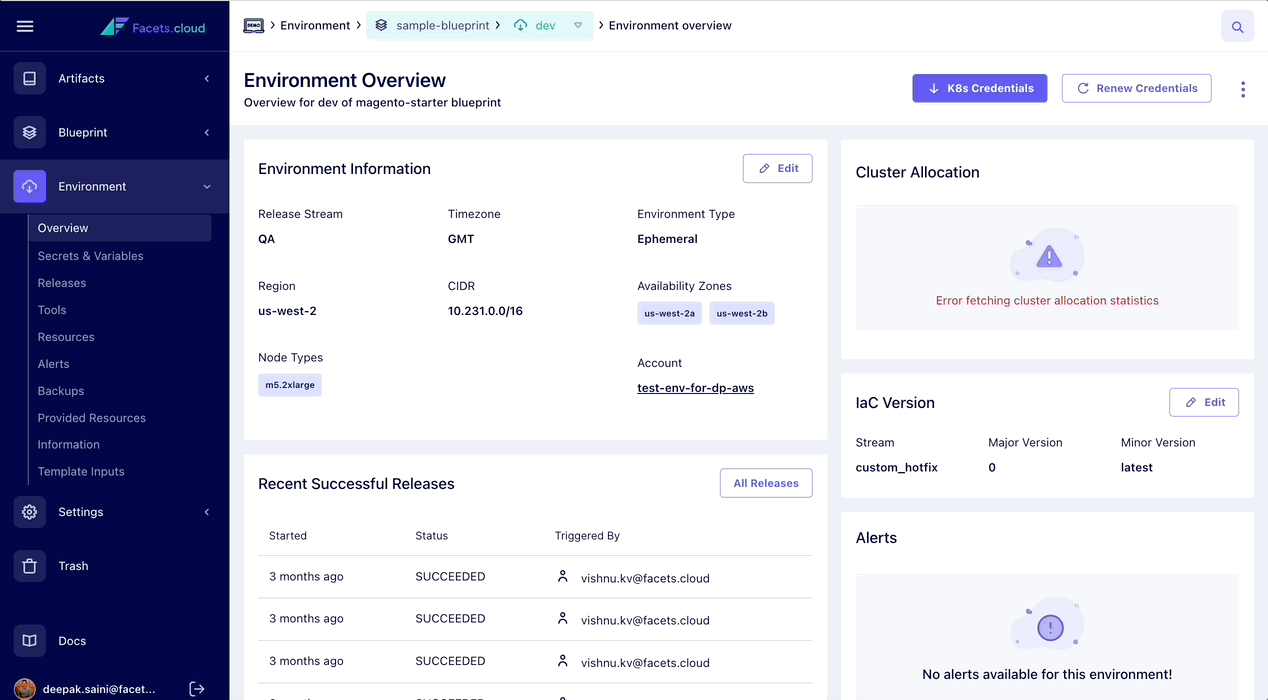We are excited to announce the latest addition to Facets – Availability Rules.
Non-production environments can account for up to 20% of overall cloud costs. Switching them off during periods of nonusage, such as weekends or nights, can provide quick savings. However, writing custom scripts or manually managing the lifecycle of these environments can be tedious and prone to missed cost-saving opportunities. With our new Availability Rules feature, nonproduction environments can be scheduled to hibernate and wake up on a defined schedule.
For example, you can configure your dev environment to run from 9 a.m. to 9 p.m. and schedule it to scale down after 9 p.m. and scale up again in the morning as required.

Availability Rules with Facet's Control Pane
By having the ability to control which deployments to scale down and which to keep running, you can ensure that essential workloads are always available.
In addition, Facets.cloud ensures that supporting workloads such as Prometheus alert manager, etc., are always accessible. The Availability Rules also shuts down all managed databases in the cloud, such as Aurora or RDS, to help you save on costs.
Overall, Availability Rules empower you to manage your non-production environments more efficiently while keeping costs under control.
Maximizing ROI on Your Cloud Investments
Controlling cloud spend is essential for any organization, but it can be challenging to manage in a SaaS environment.
Fortunately, there are some often overlooked strategies that can help you get more from your cloud investment. If you're looking for new ways to optimize your cloud costs, be sure to check out our blog post, "Managing Cloud Spend in SaaS: 7 Overlooked Opinions".
You'll find practical advice and expert insights on how to get the most from your cloud infrastructure while keeping costs under control.